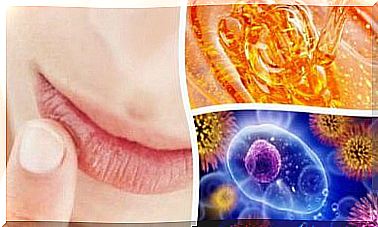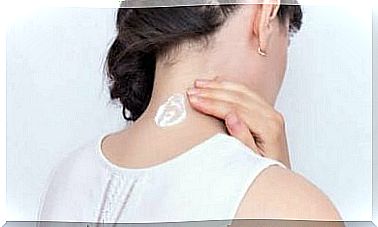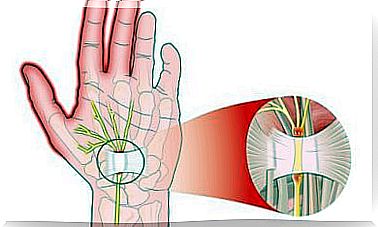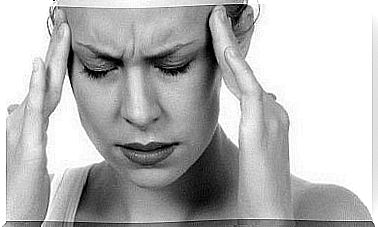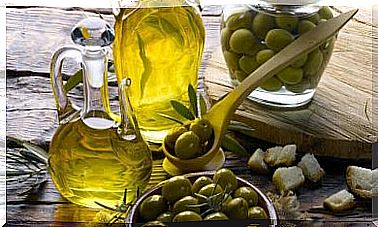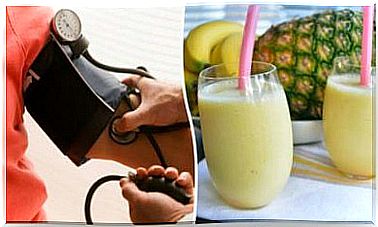The Role Of Diet In Relieving Symptoms Of Menopause
Menopause is a stage in a woman’s life that involves certain physiological changes. These changes will, in turn, involve specific nutrient and energy requirements.

The symptoms of menopause mark the onset of old age in women. This is a stage where nutritional requirements change due to hormonal changes that occur during this stage.
For this reason, specialists have established specific recommendations for different age groups. These recommendations include physical activity and physiological situations that affect a woman’s lifestyle, and are aimed at maintaining good health.
Would you like to know how diet can help you control the symptoms of menopause? Keep reading this article and you will have the answer.
What is menopause?
Menopause is a normal physiological process in a woman’s life. It implies the final disappearance of menstruation. It usually occurs at the age of 45-50 years. Hereditary history influences the age at which this stage begins.
Nutritional recommendations during menopause
Menopause is a stage in a woman’s life that involves physiological changes. These physiological changes, in turn, involve specific nutrient and energy requirements. Energy requirements decrease by around 5% every decade, which is why calorie consumption must decrease.
A varied and balanced diet adapted to individual needs contributes to the maintenance of good health, the prevention of disease and the improvement of the quality of life.
The caloric distribution of the macronutrients during this stage will be based on the principles of a balanced diet:
- Carbohydrates should constitute between 45-60% of total calories
- Protein should constitute between 10-15% of total calories
- Fat should constitute between 20-35% of total calories
Carbohydrates
The carbohydrate complexes must be present in the diet in larger quantities. You should also avoid the consumption of simple sugars from sweets, soft drinks and pastries.
Protein
About 50% of the proteins ingested must be of high biological value so that they provide the necessary quantities of essential amino acids. It is advisable to mix proteins of animal origin (cereals and legumes) with proteins of vegetable origin in order to obtain quality proteins.
Fats
Fats are an especially important group during menopause. The consumption of monounsaturated fatty acids (oleic acid) and polyunsaturated fatty acids (linoleic acid, docosahéxaenoic acid, eicosapentaenoic acid) is recommended against saturated fatty acids.
Vitamins and minerals
The recommendations regarding the consumption of vitamins and minerals are the same as for the rest of the population, with the exception of calcium and vitamin D. It is essential that postmenopausal women consume these two substances in sufficient quantities, because they are fundamental for the prevention of osteoporosis.
What foods to relieve the symptoms of menopause?

Faced with the hormonal changes of menopause, the body reacts by showing certain symptoms that can be unpleasant. Applying the following measures will help you take advantage of this step without complex.
For hot flashes
It is recommended to consume less stimulating foods such as caffeinated tea, coffee, alcohol and chocolate, especially in the evening.
The reason is as follows: these products stimulate the nervous system, inhibit sleep and increase the frequency of urination, and therefore may increase or intensify hot flashes. Lack of rest can trigger a hot flash.
For the bones
Women in the postmenopausal phase are part of the population group most at risk of suffering from bone problems (four times more than men). The decrease in the number of estrogen and other hormonal deficiencies cause the absorption of calcium to be irregular.
According to data from the Ostheoporosis: a major public health problem study , 1 in 2 women will have at least one bone fracture, usually in the hip. Foods that help strengthen bones are those rich in calcium, vitamin D, phosphorus, and magnesium.
Calcium
This mineral is the main substance responsible for the formation of bone tissue. Without calcium, there can be no formation of a healthy and structured bone, which is why calcium deficiency increases the likelihood of developing osteoporosis.
Vitamin D
This vitamin is important for promoting the absorption of calcium. It thus helps to maintain the correct level of vitamin D in the blood.
Thanks to their vitamin D intake, blue fish, eggs or liver are especially suitable for people with bone problems.
Phosphorus
As with vitamin D, a phosphorus deficiency affects the absorption of calcium, thus causing demineralization of the bones. The foods that best balance phosphorus intake are those high in protein such as meats, fish, eggs, and dairy products.
This nutrient is also present in high amounts in dried fruits, whole grains and legumes.
Vitamin K
The latest research focused on the fight against osteoporosis has shown that the loss of bone mass is not only due to calcium deficiency, but also to the deficiency of a specific protein, osteocalcin.
Osteocalcin deficiency increases the risk of bone fractures, as demonstrated by the Dilatational band formation in bone study published in an issue of the journal Proceedings of the National Academy of Sciences of the United States of America.
Roughly speaking, a vitamin K deficiency inhibits bone calcification.
For the skin

Over the years, the feared wrinkles gradually appear. Lowering estrogen levels can speed up this process. To prevent this process from being excessive, it is important to maintain a beauty routine.
It is also advisable to consume foods rich in antioxidants :
- peppers, kiwis, broccoli, blackberries and citrus fruits (vitamins C)
- seafood, meat, seeds, lentils and beans (zinc)
- carrots, beets, tomatoes and any red vegetable food (vitamin A)
These foods will help you maintain the natural elasticity of the skin, but you should not forget to moisturize it. Drinking eight glasses of water a day is non-negotiable if you want to maintain beautiful skin.
To relieve the symptoms of menopause
Foods rich in tryptophan
This amino acid is key for the production of serotonin, a neurotransmitter responsible for mood swings, sleep and appetite. During menopause, these three aspects are constantly changing.
To alleviate these symptoms, it is important to increase the consumption of the following products:
- Turkey meat
- fish
- spinach
- ricotta
- oats
- sesame and sunflower seeds
Omega-3s to control hormones
This nutrient is believed to help relieve symptoms of menopause caused by hormones. Omega-3s work in conjunction with serotonin to reduce negative effects on cardiovascular health.
Then make sure to increase your consumption of the following products:
- fatty fish
- chia seeds
- nuts
- canola or rapeseed oil
A healthy lifestyle, the best way to relieve the symptoms of menopause
We hope you find these tips helpful in countering the symptoms of menopause. A healthy lifestyle, that is, a balanced diet and regular physical activity, is the best way to experience this stage in a woman’s life.
